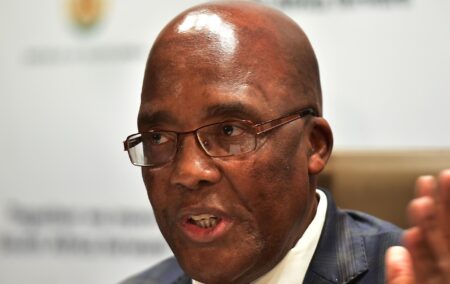In Shakespeare’s Hamlet, the anxious reply from Queen Gertrude to Prince Hamlet − “The lady doth protest too much, methinks” − is a modern cliché for when vehement denial attempts to conceal a revealed truth.
This denial was in full display from health minister Aaron Motsoaledi after the High Court ruling on 24 July 2024 that the Certificate of Need (CON) under the National Health Act of 2003 was unconstitutional.
The CON has been government’s long-standing attack upon private health care providers, with the secondary assault coming via the recently promulgated National Health Insurance (NHI) Act.
Motsoaledi is quoted on 26 July 2024, “It is purely mischief to assert a connection [between the above Acts] and is a part of the deliberate campaign to discredit the NHI”.
An assessment of the Acts and the ruling paints an entirely different picture.
CON and NHI – A tyrannical duo
The CON’s aim was to dictate where private doctors could practice, what type of facilities they could operate, and to criminalise operating without a certificate. The CON could also be withdrawn if providers did not ‘share’ their resources with the state in public-private partnerships.
Nothing short of an odious coercion compelling private doctors to become servants of the state, the CON “as it stands,” Judge Millar declared in his ruling, “… amounts to nothing more than the arbitrary deprivation of property and impairment of the right to freely practise a trade, occupation or profession”.
The CON was silent on compensation for this obligatory “sharing”. But here guidance comes from the NHI.
Medical schemes will be outlawed from insuring services that the NHI will cover, so, akin to the CON, this will compel providers into contracts with the monopoly NHI in order to retain their income. But the NHI will also decide who gets contracts in what areas and for how much. If a doctor fails to get an NHI contract, it remains illegal to contract with medical schemes, so their only options would be to run a cash-only practice, change vocations, or emigrate.
Besides the abhorrent nature of such deprivations, this diminishing of prospects for doctors will almost certainly reduce the supply of doctors. This is also a feature of the CON that Judge Millar criticised:
“The power to withhold a certificate …. is nothing more than a blunt instrument … to reduce the number of private healthcare providers who could lawfully provide medical care within a particular area, in the hope that, having been deprived of their property and ability to earn a living … they [providers] would accept the losses foisted upon them and relocate to an area which the Director General had determined that a certificate would be issued.”
The CON and the NHI are both predicated on the failed socialist ideology that centralised autocratic control can efficiently manage the dynamic forces of supply and demand. Several High Court challenges have already been filed against NHI, and using Judge Millar’s ruling as a proxy, it is likely these will succeed.
Will the ANC hang onto NHI?
The ANC might nonetheless hang onto the NHI. Historically, it’s been the perfect scapegoat to avoid accountability for the horrid mismanagement of public health services and, at 17 years old now, the NHI is deeply ingrained within ANC ideology.
However, the signing of NHI into law on 15 May 2024 revealed a curious electoral miscalculation by the ANC and having now lost its parliamentary dominance, there may be sufficient incentive for re-evaluation.
The Social Research Foundation’s tracking poll, which turned out to be very accurate, measured the ANC at 46.2% of the vote share on 15 May but by its last calculation, just two days before the 29 May elections, it was at 41.6%. The final ANC vote share came out slightly lower at 40.2%, but what this meant is the ANC shed almost a million votes after the NHI was signed into law.
Is the NHI’s appeal overrated?
Where the ANC overrates NHI appeal is seemingly two-fold. Firstly, it assumes that the promise of free quality health care is meaningful to citizens too poor to afford private cover. Public health care is already free and given the disproportionate impact service delivery failures has on this constituency – including health care – it is unlikely they will believe promises of quality care coming at some vague future time.
Secondly, reports published by Victory Research, who undertook the above polling on behalf of the Social Research Foundation, revealed that an overwhelming 98.3% of ANC voters are black. Further data from StatsSA and the Council for Medical Schemes informs that of the 6.3 million medical scheme beneficiaries eligible to vote, 3.3 million are black. Overlaying the Victory Research data advises that between 2.1 and 2.3 million black medical aid members voted – out of a total vote tally of 16.1 million.
This represents a substantial constituency that is undeniably deterred by NHI and plausibly explains the large decline in ANC support after the NHI was signed into law.
The ANC could do well to modernise with more centrist policies that are not only constitutionally compliant but also deliver to a now largely urbanised and savvy electorate. Reliance on populist policies derived from its socialist underpinnings, like the NHI, will probably cause the ANC further electoral decline.
[Image: https://www.flickr.com/photos/governmentza/28710481258]
The views of the writer are not necessarily the views of the Daily Friend or the IRR
If you like what you have just read, support the Daily Friend

